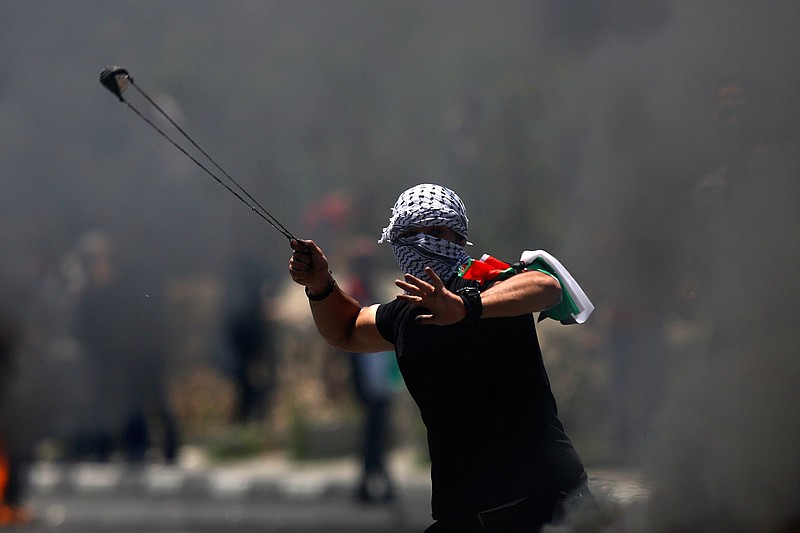GAZA CITY, Gaza Strip-Israel faced a growing backlash Tuesday and new charges of using excessive force, a day after Israeli troops firing from across a border fence killed 59 Palestinians and wounded more than 2,700 at a mass protest in Gaza.
Turkey expelled Israel's ambassador, while Ireland and Belgium summoned Israeli envoys. Leading European countries and the U.N. human rights office called for an investigation of the bloodshed, and the U.N. Security Council held a moment of silence for the Palestinians killed Monday as it opened discussions on the Gaza situation.
Israel says it has the right to defend its border against a possible mass breach and accuses Gaza's Hamas rulers of trying to carry out attacks under the cover of the protests. A military spokesman said Tuesday that 14 of those killed a day earlier were involved in attacks.
In fresh violence, Israeli forces killed two Palestinians after protests resumed Tuesday. The Palestinian Health Ministry said the deaths occurred in separate incidents in central Gaza. The military said it had fired live rounds "selectively," in line with standard operating procedures.
Monday marked the deadliest day in Gaza since a 2014 cross-border war with Israel, and was part of a high-stakes campaign by the Islamic militant Hamas to break a decade-long border blockade.
Gaza Health Ministry, which provided the toll from Monday's violence, said a 9-month-old girl died from tear gas exposure, but medical officials later cast doubt on that claim, saying the infant had a pre-existing medical condition. It remained unclear Tuesday where and how the child died.
In jarring contrast to the Gaza bloodshed, the U.S. held a festive inauguration ceremony for a new U.S. Embassy in contested Jerusalem at the same time Monday, just several dozen miles (kilometers) away. The juxtaposition of violence on the Gaza border and festivities attended by a Trump administration delegation-captured on split screens in TV broadcasts around the world-briefly drew attention to the plight of Gaza and its 2 million people.
The relocation of the embassy from Tel Aviv, condemned by Palestinians as blatantly pro-Israel, further dimmed prospects of what President Donald Trump had once touted as plans to negotiate the "deal of the century." The Palestinians seek Israeli-annexed east Jerusalem as a capital.
The high casualty toll revived international criticism of Israel's open-fire policies. Rights groups have said the use of potentially lethal force against protesters who pose no immediate threat to soldiers' lives is unlawful. The military has said presumably less lethal rubber-coated steel pellets are not effective in keeping demonstrators from the fence.
Germany, Belgium and Ireland called for an investigation of the violence.
The U.N. Security Council met Tuesday to discuss the violence, beginning with a moment of silence at the suggestion of Poland, the current council president.
In strong criticism of Israel, the U.N.'s Mideast envoy, Nickolay Mladenov, told the council "there is no justification for the killing." He called on Israel to "recalibrate" its use of force and to use lethal force only as a last resort.
He also urged Hamas not to use protests as cover to plant bombs and "create provocations."

